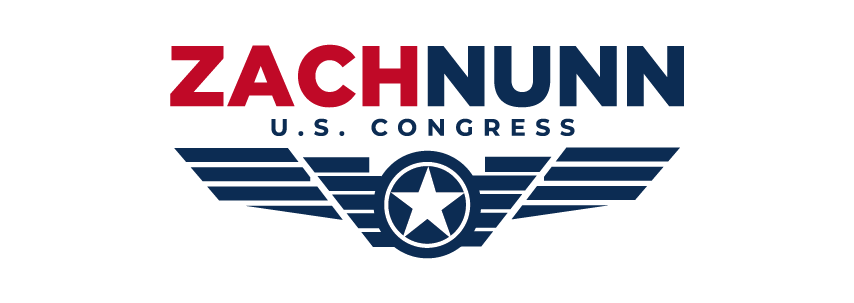Rep. Zach Nunn | Des Moines Register
The city of Seoul, South Korea, is an economically lively and culturally welcoming metropolis. Home to over 24 million residents, it is also a city well within range of the most deadly artillery barrage on earth. A few miles from South Korea’s capital, North Korean armaments are locked on the city, capable of inflicting 80,000 casualties in a single day.
This month, the northern nation’s totalitarian leader, Kim Jong Un made clear his intent to field nuclear weapons. The question now, can he be stopped?
Recently, I served alongside fellow citizen-soldiers on a military deployment with the Iowa National Guard. Our mission is a U.S. commitment 60 years in the making — to help defend South Korea. Today, I write as an Iowan, sharing my perspectives from South Korea as it guards against threats amassed on the most dangerous border in the world — the 38th Parallel’s Demilitarized Zone.
What I witnessed was an increasingly belligerent and confident North Korea making an aggressive play to become a nation of nuclear weapons.
The 1950-53 Korean War ended in armistice. The truce is still all that technically prevents the Koreas from resuming war. Both North and South regularly accuse the other of violating the agreement, but declarations of unchecked aggression are rising with North Korea’s nuclear program.
Last month, North Korea’s communist government threatened South Korea and America with a “merciless and annihilating nuclear strike.” The North then launched near simultaneous ballistic missiles — an indicator of an attempt to overwhelm U.S. anti-missile defenses. North Korea further executed a successful submarine-based long-range ballistic missile test, demonstrating a deadly first-strike capability able to hit South Korea, Japan or even the continental United States.
Disturbingly, Kim’s warlike actions culminated in a nuclear warhead detonation last Friday. The nuclear device — in the 20-kiloton range, marking North Korea’s largest explosion — would render destruction on par with the atomic strike on Hiroshima.
During the recent meeting of global leaders at the G20 summit in China, it became clear neither the U.S., nor the international community have slowed North Korea’s nuclear ambitions. Trade between China and North Korea continues to grow, a clear indication Beijing is not enforcing UN Security Council Resolution 2270 — the fifth set of sanctions on North Korea’s weapons programs.
China failed to stop the flow of materials to North Korea’s nuclear weapons program, like cylinders of uranium hexafluoride, allowing Kim to rapidly advance his high-yield ambitions. Left unchecked, nuclear expert Siegfried Hecker, who has regularly visited the North’s nuclear facilities, estimates “the North may have enough nuclear fuel for about 20 bombs by the end of 2016 and the ability to add about seven new bombs a year.”
To stop the next launch, the U.S. must look beyond U.N. embargoes. History proves Kim is undeterred by these actions — evidenced by the tens of thousands of his own people starving under sanctions. North Korea is making fast progress in developing powerful nukes and will likely sell both weapon and missile technology to hostile and rogue nations to fund its ambitions.
Despite China’s ability to prevent North Korea’s escalation, what China is lacking is “willingness,” says Zhang Baohui, director of the Center for Asian Pacific Studies in Hong Kong. Thus, China may sooner accept an unpredictable and dangerous nuclear neighbor than to be seen supporting US-led efforts to stop the North.
To prevent a future nuclear North Korea, the U.S. and the rest of the international community must realize they have a China problem as much as a North Korean one.
For Iowans, our service men and women are actively and honorably serving alongside our South Korean partners in defense of peace. As Iowans, we are an integral part of the global economy and what we grow, service and manufacture has world-wide impacts. Iowa has a voice to influence not just Korea, but more importantly China.
Zach Nunn serves as an Iowa state representative and was chief of counter weapons-proliferation for North Korea in the U.S. intelligence community. The views expressed in this article are those of the author and do not necessarily reflect the official policy or position of any agency of the U.S. government. Contact: Zachary.Nunn@legis.iowa.gov

